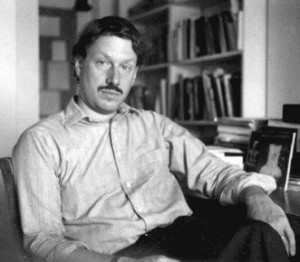Beauty in the Academy: Faith, Scholarship and The Arts will be the central theme Thursday-through-Saturday when experts gather at Lipscomb for the 30st annual Christian Scholars’ Conference.
The conference boasts a diverse group of plenary speakers, all scholars in their own right, weighing in on subject areas of art, literature, theater and music.
Conference attendees also will have opportunities to share their thoughts in paper-and-panel sessions.
The conference’s goal annually is to create and nurture an intellectual and Christian community that brings individuals and institutions together to stimulate networks of scholarly dialogue and collaboration.
The conference was created by Dr. Thomas H. Olbricht of Pepperdine University and has been hosted by Church of Christ schools across the country. But now, the CSC calls Lipscomb University home most of the time.
The conference attracts Christian scholars, from a wide variety of disciplines in the liberal arts and sciences, who wish to develop their own academic research.
Professor David Fleer, advisory board chairman of the conference, coordinates the event for Lipscomb.
“It’s as deep as scholarship as exists,” he said.
Plenary Addresses–The Beauty
The conference is structured around four plenary addresses, each featuring a scholar of focus in a later panel session.
The Lipscomb Art Department supported the first speaker to lead the Colloquium for the Fine Arts. James Elkins is E.C. Chadbourne Professor in the Department of Art History, Theory and Criticism, School of the Art Institute of Chicago. He has written many books of art criticism, with a focus on the history and theory of images in art.
His address, titled “Ongoing Issues between Religious Art and the Art World,” will open the conference in Alumni Auditorium at 9:30 a.m.
Second in the weekend lineup is poet Dana Gioia. Formerly chair of the National Endowment for the Arts, Fioia works for the Aspen Institute, heading up the arts and culture programs.
His accomplishments with the NEA included starting Shakespeare in American Communities, Operation Homecoming and Poetry Out Loud, reestablishing the federal agency as a leader in arts education.
He has published three poetry collections, with his most recent — Interrogations at Noon — earning the American Book Award. A famed critic as well, Gioia’s book Can Poetry Matter? is credited with helping to revive the role of poetry in American public culture.
His plenary, “The Power of Writing,” will be at 12:30 Thursday in Acuff Chapel.
Pulitzer-prize winning playwright John Patrick Shanley rounds out the Thursday addresses. He will speak on “Disquiet” at 4 p.m. in Alumni Auditorium.
Shanley’s play Doubt won the 2005 Tony Award for Best Play, and the film adaptation he directed won five Oscar nominations. He also won a Best Screenplay Oscar for Moonstruck.
Shanley will also host a talkback after opening-night performance of Doubt, directed by Mike Fernandez. The show will be in Shamblin Theatre at 7 p.m. Thursday.
Musical duo Over the Rhine will close out the conference with an interview session at 10:45 a.m. on Saturday. Rodney Clapp hosts the discussion on “The Power of Music.”
Each speaker is also the subject of a paper or panel session, so their work will be discussed by many attending scholars. All of the plenary addresses are open to the public.
The conference is filled with performances and films to round out the art focus of this year’s conference.
Tokens, Nashville’s new old-time radio show, features Over the Rhine at 7:30 p.m. Friday. Doubt continues through the weekend and also June 11-13. As a pre-show feature, the Oscar-winning documentary BurmaVJ is screening Wednesday night.
Paper and Panel Sessions– The Academy
As the goal of the Christian Scholars’ Conference is the intersection of faith and scholarship, the paper-and-panel sessions allow scholars a chance to express their thoughts and ideas in an academic setting.
“[For scholars] this is where the plow hits the land,” Fleer said.
The paper-and-panel sessions serve scholars in three ways. The academic can enter a traditional paper to be read for peer review. Those seeking to move toward publication can have their work critiqued.
Generative paper sessions are for what Fleer calls “academic entrepreneurs,” or scholars who pull other papers together to focus on one topic. Panel sessions bring scholars together for discourse on themes related to the overarching theme of Beauty in the Academy.
“The goal of the paper-and-panel sessions is to give academics opportunities to collaborate on ideas and build networks,” he said.
About 50 graduate students also will attend the event.
“This conference introduces the Ph.D students to a family of scholars,” he said. “It is a great atmosphere for those that want to move into the life of the mind.”
The main goal of Christian Scholars’ Conference is that faith be considered a reality as displayed through interdisciplinary scholarship.
See the entire Christian Scholar’s Conference schedule at csc.lipscomb.edu




